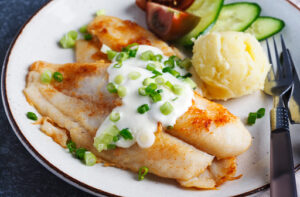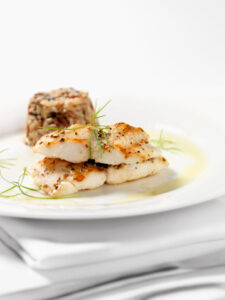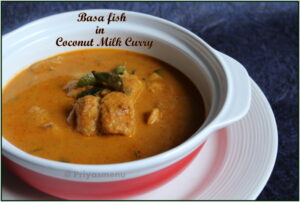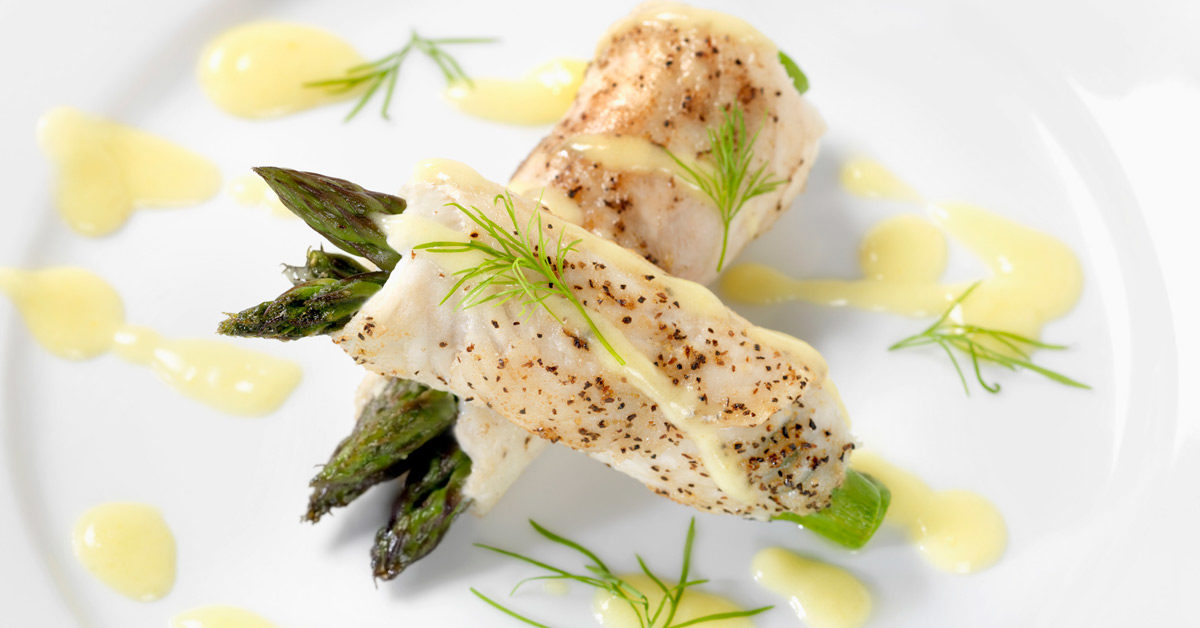Scientifically named Pangasius Bocourti, Basa fish is essentially a catfish readily available in the market. Some of the common names given to the species are Vietnamese Cobbler, River Cobbler, and Swai. Although native to Vietnam’s Mekong and Chao Phraya river, Basa fish is extensively exported throughout the world and is easily found in many Asian countries.
What is Basa fish?
Coming to the specifications, the Basa fish is light pinkish and firm-textured in appearance. The bone structure is single, broad with a small head. Often sold as an alternative to the cod and haddock, being the cheaper alternative. Western countries sell Basa in the name of boneless fish fillet.

This one is extensively popular among restaurants because of the mild texture and smells it has. Basa is harvested in wild rivers and fish farms at a low price. Let us now talk about e nutritional facts of the Basa fish.
Nutritional value:
Not to mention, fish is always a great source of protein. It is a preferred choice of the health-conscious populace because of the low-calorie content. It is high in essential nutrients but low in calories which makes it the perfect fish for fish lovers.
Hence, people who wish to lose weight or maintain a healthy body and weight can choose this fish as an alternative to other fish with high-calorie content. Let us look at the nutritional content in detail.

One serving, as in 126 grams of Basa fish is likely to have the following nutritional value:
- 158 calories
- 5 grams of protein
- 7 grams of fat
- 2 grams of saturated fat
- 73 milligrams of cholesterol
- Carbohydrates: 0 g
- Sodium content: 89 mg
As a piece of additional information, the fact that Basa fish contains Omega-3 fatty acids like DHA and EPA shall also be disclosed here.
Is Basa fish healthy?
To answer this question, we have enlisted the varied health benefits of Basa fish. Take a look at these and decide for yourself:

-
Weight loss:
As mentioned earlier, the low-calorie Basa fish is a great choice if you wish to maintain a healthy weight. Basa is a high-protein, low-fat fish. Basa is a good option for people who are wanting to lose weight. It aids in the removal of excess stored fat in the body since it is high in protein and low in fat and calories.
-
High-protein basa fish:
Basa is high in high-quality protein, which means it contains all of the body’s required amino acids. Basa fish has 13 grams of protein per 100 grams. Protein is required for our bodies to repair and replace cells. As a result, tissues, muscles, and an overall fit body have a strong basis.
Proteins are required for the growth and development of children, pregnant women, and young adults.
-
Benefits of Basa Fish for Heart Health:
Basa is high in Omega-3 fatty acids, including EPA and DHA, which are crucial for heart health and mental well-being. The ingestion of this fish on a regular basis has been related to a lower risk of heart disease and depression.
-
Low-carbohydrate Basa Fish:
Basa is a low-carbohydrate animal meal that is an excellent choice for weight-loss programs. It’s a terrific lunch option because it won’t make you feel groggy or tired.
-
Basa Fish Is Good For Your Brain:
Eating fish is good for your brain. Basa contains DHA (docosahexaenoic acid), a fatty acid that promotes brain function. It also reduces the chances of developing Alzheimer’s and Parkinson’s disease.
-
Blood Pressure is Lowered by Basa Fish:
The sodium content of basa is minimal. A serving of Basa has 48 mg of sodium in 100 grams. People with high blood pressure should incorporate Basa into their diet on a regular basis.
-
The Basa Fish Aids in Longevity:
People who had greater quantities of omega 3 fats in their bodies lived 2.2 years longer than individuals with lower levels of omega 3 fatty acids, according to research. Basa fish is high in Omega -3 fatty acids, which can help you avoid strokes, heart attacks, and brain damage.
-
Basa Fish Is High in Minerals:
Minerals such as zinc and potassium abound in basa. Zinc and potassium are essential for strengthening immunity, mending wounded tissues, and maintaining body electrolyte balance.
Now is the time we tell you the ways you can consume the Basa fish.
Basa fish recipes:
- Basa fish curry in coconut milk: For this recipe, you simply need to make the Basa fish curry like any other fish curry.

- Start with adding oil to the pan.
- Then add chopped onions, saute them, then add tomatoes and saute them too.
- Now grind these two ingredients to a thick and smooth paste.
- After you’ve added all the spices like coriander powder, curry leaves, etc., cook the spices on low flame.
- Then, add coconut milk to the mixture along with the fish pieces.
- Lower the flame and cook until the fish gets completely cooked.
- Add garam masala, if you wish.
- Simmer for another minute and serve hot.
See More:
Swai Fish: Amazing Nutrition Facts Behind It
Turbinado Sugar: Whole Introduction About this Natural Raw Sugar

